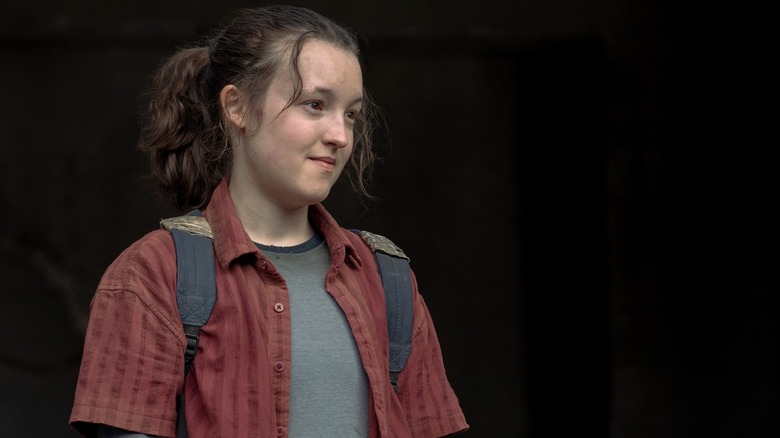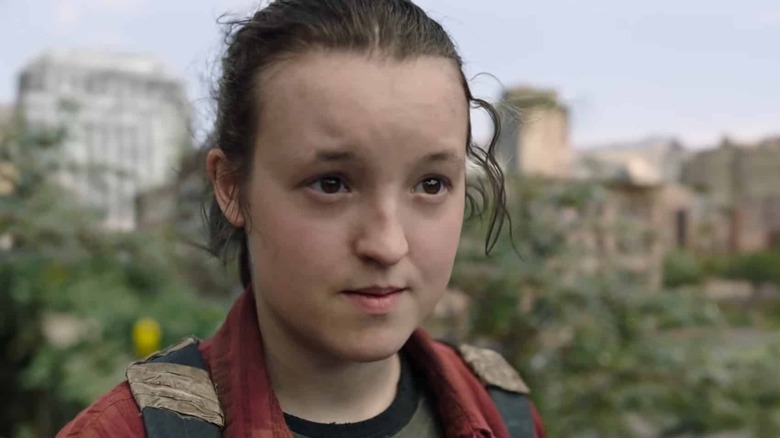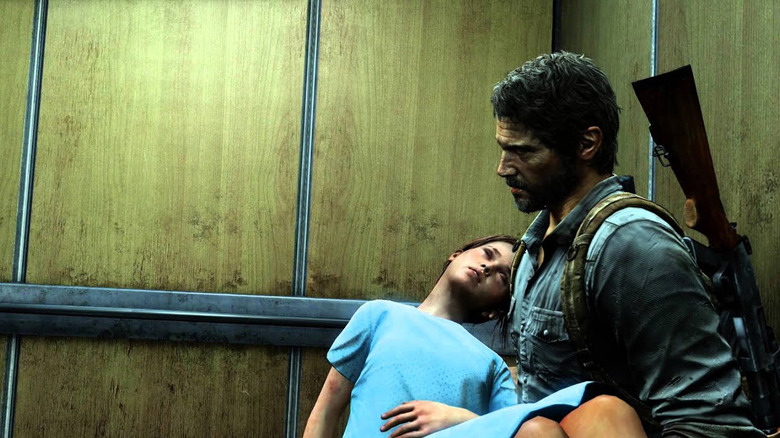Why The Last Of Us Season 1 Was Always Going To End This Way
The following article contains spoilers for "The Last of Us" season 1 finale.
Although HBO's "The Last of Us" has been fairly faithful to the video game series so far, the show has proven it's not afraid to veer sharply from the source material whenever it wants to. This caused some early controversy when the writers opted not to include the spores from the game, instead introducing the concept of the infected being connected by an underground fungal network. The show made an even bigger change from the game with episode 3, giving Bill and Frank's relationship far more focus than any of us expected.
Not only was Bill and Frank's backstory fleshed out, but their relationship was made a lot less toxic than what the game implied. Although this major departure from the source material was (mostly) well-received, it did leave an interesting question for fans of the game as they went into the finale: Was the show going to switch up the events at the Firefly lab too? Since it softened up Bill and Frank, would the series soften Joel's final actions as well?
Those fears turned out to be unfounded: Not only did "The Last of Us" stay true to Joel's actions in the game, but this was quite possibly the most faithfully written episode of the show so far. Outside of the opening scenes with Ellie's birth, most of what happens plays out exactly as it does in the game, almost beat for beat. There are entire conversations that feel like they've been copy-and-pasted from the game's script to the show's. So, why'd the writers do that? They've felt free from straying from the source material before; why'd they stay so faithful now?
Some plot points are 100% necessary
The answer is fairly straightforward: The video game's ending is its most important part. The decision to have Joel choose to murder dozens of people (not to mention, doom all of humanity) to save Ellie isn't just the culmination of the slowly growing bond the two characters developed throughout the game; it also leaves players with a complicated trolley problem in which there is no clear-cut answer.
Joel and Ellie's love for each other feels like such a positive thing throughout the game, right up until the finale turns things on its head and reveals just how ugly and destructive love could be. In a devastating reversal of the usual storytelling tropes, the game gives players an ending where love doesn't save the world — it ruins it. What's more interesting is that the game doesn't take a strong stance on whether this is necessarily a bad thing, so whether this is a cynical ending or a somewhat optimistic one varies a lot from player to player. After all, the world seems pretty beyond saving at this point anyway, and the Firefly scientists weren't 100% sure that the fatal surgery they were planning on Ellie would even be able to make a cure in the first place. For some fans, Joel's decision is clearly the right one. For other fans, it's obviously wrong.
The game throws yet another complication into this impossible dilemma, which the show stays true to: By saving Ellie's life, Joel's going against Ellie's wishes. The closing note of both the game and the show is Joel lying to Ellie about what happened. Ellie accepts his explanation for now, but it already seems clear that this lie is threatening to tear their relationship apart.
The beauty of an ambiguous ending
Back in 2013, the game's ending was easily the most controversial part about it, leaving a bad taste in a lot of players' mouths. After all, Joel doesn't simply not let Ellie die; he actively, brutally murders dozens of people, setting a few of them on fire and killing a couple of them while they're trying to surrender. The finale is arguably Joel at his most monstrous, and you're forced to take part in his objectional acts whether you want to or not. The first 90% of the game lets you choose how you handle certain situations; the finale takes those choices away.
Although it's a little too soon to gauge public opinion after the show's finale, Bella Ramsey at least has been fully expecting it to be just as divisive among viewers as it was for the players. "It's going to divide people massively – massively," she told Vogue in a recent interview. With the main character doing something so arguably selfish, how could it not be at least a little controversial?
Although the ending to season 1 is unavoidably uncomfortable, this is exactly what makes it so strong. There is no simple answer to what Joel should've done, and neither the show nor game tell us how to feel about his actions. "The Last of Us" leaves us with a whole list of questions to think about as we wait for season 2, but unlike lesser shows, these questions aren't spawned by the show withholding information from us. Season 1 tells us a complete story that would work just as well as a mini-series, and it gives us a dark, unsettling ending that'll stick with us long after the credits roll.


